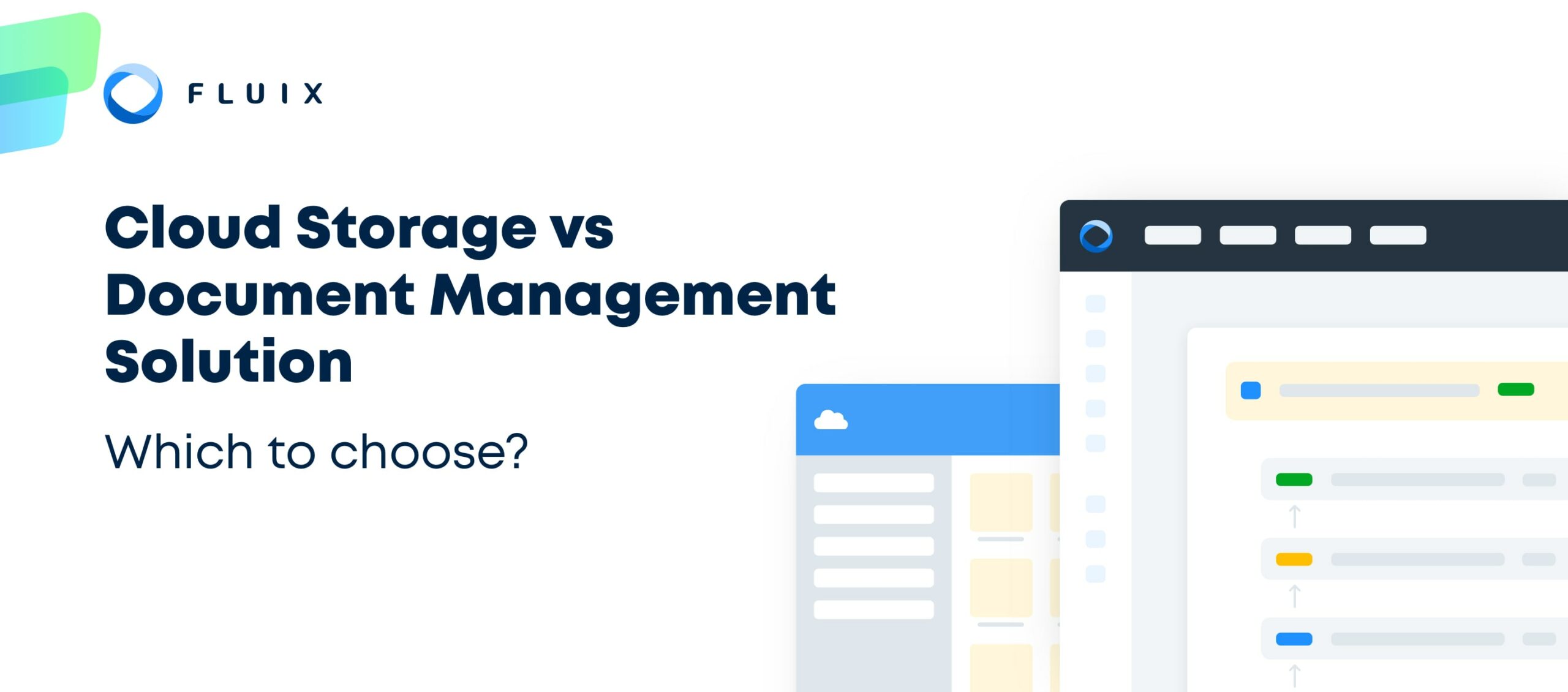The level of noise in the Content Management Systems space has risen significantly over the last few years as different vendors try to wrestle market share from each other. The end result is a massive amount of confusion among users as to which solution is best for which purpose. Let’s try taming the amount of marketplace noise down by comparing Document Storage and Document Management software not from product features, but from a business need standpoint.
First of all, we have to remember that any software solution is designed to automate some business process, so we need to identify which problems both Document Storage and Document Management solutions aim to address.
What’s the difference?
Document Storage systems are designed, first and foremost, to help organize documents, and also to assist with search, backup, storage and access to electronic documents in accordance with company policies. They are usually not concerned with the content contained in stored documents, outside of indexing them for search.
Among the most popular cloud storage providers are Dropbox, Microsoft OneDrive, Google Drive, and Box.
Document Management solutions (DMS), on the other hand, aim to automate the entire document lifecycle, from creation to archiving. It goes without saying that documents are stored in the system throughout the entire process; access control, indexing and retention policies are also enforced, but these are auxiliary functions. The main function of DMS is to provide a framework to build document flows through all necessary stages.
Let’s talk about 4 functions of a DMS that differ it from online drive.
1. Document Management Workflow
Document management workflow solutions help you automate document-based processes across the whole company. Within the system, documents can be created and edited, shared between coworkers for review and approval, and finally uploaded to cloud storage.
2. File naming convention
Manual document naming is always frustrating both for field workers who need to enter file names on devices, and office personnel who have to sort and rename hundreds of documents in cloud storage. A DMS software offers a smarter way to configure file naming for document templates, and automate the naming process across all documentation. Each time a form is filled out in the field, the naming convention is automatically applied, and as a result, all documents in storage have unified consistent naming.
3. Integration with CRM
Document management systems should integrate easily with third party solutions like cloud storages, ERP systems, CRM tools, and others. In this way, the data flawlessly passes from the very first step, such as form prefill, to the final destination, such as cloud storage or a data visualization tool. In addition, DMS software frequently integrates with eSign solutions, to ensure the document flow is not interrupted by the need to manually copy and paste data from one system to another.
4. Data Security
When working with sensitive data like customer’s personal data or health information, data security becomes paramount. The requirements are even more strict at an enterprise level. An enterprise document management software solution has to provide a number of security features, such as:
- Role based permissions
- Data encryption in data and at-rest
- Audit trail
- Centralized document control
- Secure login into system
- Data retention policy
It’s hard to name the best DMS, since the choice would depend on the required functionality, effort of deployment, price, and other factors. The big players in the field would be Microsoft SharePoint and Rubex. Those who are looking for more lightweight solutions with fast rollout and minimum ongoing admin requirements, could consider M-Files or Fluix.
Conclusion
If you are looking for file backup and storage, then a cloud Document Storage solution will suit your needs. If your company has document lifecycles with signers, reviewers and approvers, you definitely need to take a closer look at Document Management Systems. Happy hunting!







